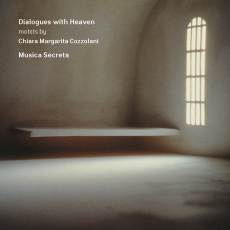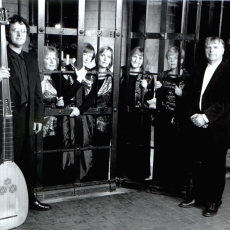Musica Secreta - Dialogues with Heaven - International Record Review
Nearly a century before Vivaldi was writing for the girls of the Venetian Pieta, and around the same time that Barbara Strozzi was composing her remarkable solo cantatas and arias, Chiara Margarita Cozzolani (1602 - c1677), a singer, composer and nun at the Milanese convent of Santa Radegonda, published the two volumes from which the motets on this disc are taken.
Cozzolani was composing at a time when the north Italian motet was becoming a much more personal and almost theatrical form. Several of the pieces here are in dialogue form, with contrasting groups of voices representing different characters: the faithful and Mary in Quid, miseri, quid faciamus for example, and the faithful and angels in O caeli cives. The principle of contrast underpins other aspects of Cozzolani's motets, too. Regina terrae and Tu dulcis, O bone Jesu both include delicate, lilting or freer, florid sections for two duetting sporanos (with chitarrone accompaniment) that are interspersed with more chordal sections for the full ensemble (with organ accompaniment).
The most striking track, both in terms of composition and performance, is undoubtedly Psallite, superi. As in many of the other motets, this setting is full of textural variety, with frequent changes of pace and mood, as simple declamatory sections and lively hemiola rhythms contrast with more flamboyant virtuoso passages. Musica Secreta's singing is perfectly matched to this music: the voices blend beautifully - the soaring sporanos paired with the full, warm tone of the altos - while their mastery of improvised embellishments and their technical and emotional range are impressive and highly effective. Throughout, the singers convey these texts vividly and with the clearest articulation. Their sound is never sentimental or precious, but has a firm and purposeful edge to it.
Although relatively unfamiliar, Cozzolani's music bears comparison with that of her more familiar contemporaries. The disc comes with an attractive, simply designed booklet that includes an interesting account by Robert Kendrick about new research on Cozzolani which places her in context. And one should resist the temptation to make too much of the 'feminist' angle - a group of female singers performing music by a female composer: this music needs no such gimmick to guarantee its appeal.



